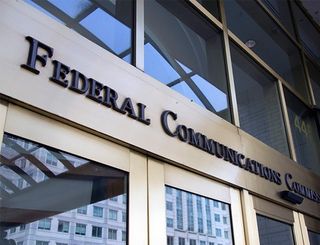FCC Rejects Seven Stations' DirecTV Retrans Complaint

The FCC's Media Bureau has denied an "emergency complaint" from seven commonly-controlled TV broadcasters that said DirecTV violated the agency's "good-faith order" during retransmission-consent negotiations earlier this year.
In its ruling the FCC said it did not find "any evidence that DirecTV acted in a manner that unduly delayed the course of negotiation."
The case is one of the first retrans disputes in which broadcasters attacked the satellite carrier under its new ownership by AT&T. The broadcasters, which had opposed the merger, are Northwest Broadcasting, Broadcasting Licenses, Mountain Licenses, Stainless Broadcasting, Eagle Creek Broadcasting of Laredo, Bristlecone Broadcasting and Blackhawk Broadcasting.
"Northwest failed to meet its burden of proving that DirecTV did not negotiate retransmission consent in good faith," the FCC said.
Northwest et al. said in the June complaint that DirecTV did not provide comparable pricing information from its other retrans agreements to enable the seven stations to update their 2011 agreements. Those deals were set to expire in February and were extended. Northwest cited data from more than a dozen other DirecTV agreements from this year "in an effort to establish a fair market value for the retransmission of its signals," said the FCC's analysis of the case.
DirecTV refused to pay the fee that Northwest requested, saying that "the amount is far greater than what it pays under any other agreement," according to the FCC ruling. As negotiations went back and forth in May, the FCC found that Northwest "did not provide a response to DirecTV's final offer on May 29."
"We find that the record fails to establish a violation of existing good faith rules," the Media Bureau's ruling concluded. It agreed with DirecTV's claim that "it is not required to provide confidential information about its other retransmission-consent negotiations in order to successfully complete negotiations with Northwest."
Broadcasting & Cable Newsletter
The smarter way to stay on top of broadcasting and cable industry. Sign up below
"The uncontested record demonstrates that DirecTV has provided offers and counter-offers throughout the negotiations and even made offers more favorable to Northwest in the absence of a counter-offer by Northwest," the FCC continued. "As to Northwest’s argument that DirecTV caused a delay by not providing the 'background facts' requested ... we do not find any evidence that DirecTV acted in a manner that unduly delayed the course of negotiation."
The Commission cited a retrans dispute between Mediacom and Sinclair Broadcasting as a precedent that supports DirecTV's "good-faith" position in this case. It said that "such a disagreement leading to the inability to conclude a retransmission-consent agreement does not amount to bad faith" as it declined to require DirecTV to disclose to Northwest the retransmission-consent rates that it has negotiated with other broadcasters.
Contributor Gary Arlen is known for his insights into the convergence of media, telecom, content and technology. Gary was founder/editor/publisher of Interactivity Report, TeleServices Report and other influential newsletters; he was the longtime “curmudgeon” columnist for Multichannel News as well as a regular contributor to AdMap, Washington Technology and Telecommunications Reports. He writes regularly about trends and media/marketing for the Consumer Technology Association's i3 magazine plus several blogs. Gary has taught media-focused courses on the adjunct faculties at George Mason University and American University and has guest-lectured at MIT, Harvard, UCLA, University of Southern California and Northwestern University and at countless media, marketing and technology industry events. As President of Arlen Communications LLC, he has provided analyses about the development of applications and services for entertainment, marketing and e-commerce.

